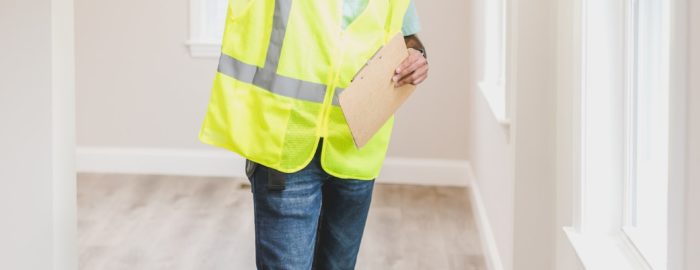Whether you’re buying new or existing construction, you’re likely going to need a mortgage. To get a mortgage, almost all lenders require you to get a home inspection. But this isn’t merely bureaucratic red tape; on the contrary, a home inspection can provide valuable knowledge before you take the leap of purchasing a home.
A home inspector takes a thorough look at your home’s structure, systems, and features to ensure everything is working properly. As a neutral third party, you can count on them for an objective assessment of the home.
What’s Covered?
Most home inspectors are certified by InterNACHI, so there are common standards across inspectors. Your inspector will inspect:
- Electrical systems such as the breaker box, lighting, and power outlets.
- Plumbing, including all faucets, toilets, and the water heater.
- Insulation in both the attic and crawl space, as well as checking for moisture intrusion in those spaces.
- HVAC, including fireplaces.
- Interior structure, including doors, windows, and interior features like molding and drywall.
- Exterior structure like siding, stair railings, garage doors, and gutters.
- Fire codes, such as smoke and carbon monoxide detectors and flame-retardant doors.
What Isn’t Covered?
Some inspectors may offer additional services that aren’t on this standard list, such as:
- Radon inspection. Radon is a naturally occurring element in the earth’s soil. In too-high concentrations, however, it can be harmful.
- Wood-destroying insect inspections. Especially important for older homes or if your home is on a wooded lot, but still recommended for all properties.
- Roof inspection. Most inspectors will assess your roof from the ground. You may have to hire an actual roofer if you need the roof inspected more thoroughly.
- Anything underground. Septic tanks, drainage pipes, wells, and other underground structures are usually off limits.
After the Inspection
Your inspector should provide a thorough written report with photos of any problem areas in the home. For existing homes, you can sometimes use these findings as leverage to negotiate a lower selling price. For new construction, your builder should be able to fix any issues under your home’s warranty. Either way, a home inspection sets your purchase up for success!
Looking to buy a new or existing home in Chatham County? Lisa Skumpija and her team of realtor can connect you with the best builders, inspectors, and homes in the region! Contact them today to get started.


